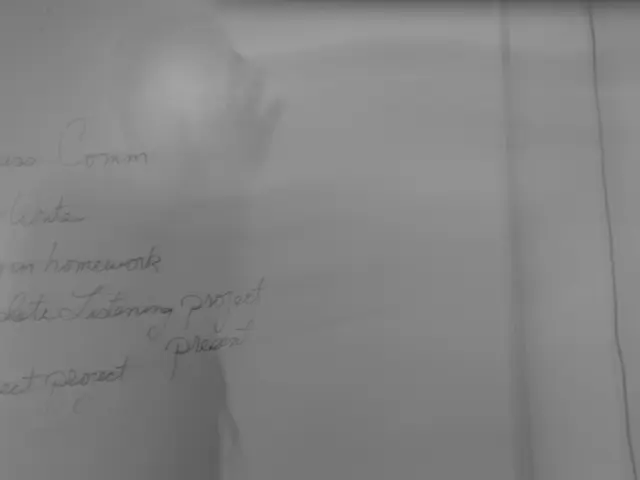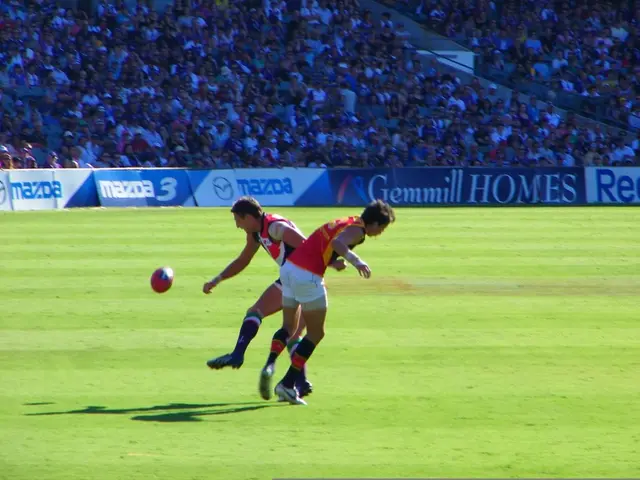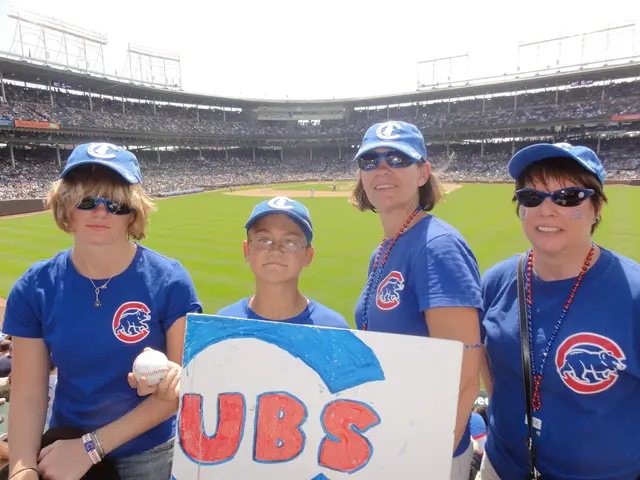Berlin Court Ponders on Lifting Soviet Flag Ban during Remembrance Events
Ruling on the Controversial Flag Prohibition during Memorial Event - Ruling on Flag Restrictions at Commemorative Sites
Stepping into the legal fray, a Berlin court will decide on whether to overturn the ban on displaying Soviet flags during upcoming remembrance events at certain locations around the city. An association has filed an urgent appeal, seeking permission to use the Soviet flags during events taking place on Thursday and Friday.
Theinitial flag ban, imposed by the police, extended to all symbols related to Russia, due to the ongoing conflict between Russia and Ukraine. The Administrative Court of Berlin aims to announce its decision either today or tomorrow, according to a spokeswoman for the court.
Given the magnitude of the upcoming events marking the end of the Second World War in Europe 80 years ago and the liberation from Nazi rule, the police have announced a substantial security operation.
In addition to Russian and Soviet flags and symbols, military uniforms, orders, marching songs, and symbols supporting Russia in the war against Ukraine are prohibited. However, this ban does not apply to war veterans, diplomats, or representatives of the then-involved states.
The Controversy at Hand
The Administrative Court of Berlin has already upheld the ban on Soviet flags around the Soviet Memorial in Tiergarten on May 8 and 9, mirroring restrictions on Russian and Soviet symbols duringVictory Day commemorations. However, the association has filed a claim to overturn these restrictions, with the court considering this appeal.
The outcome of this legal challenge will determine whether the court can lift the flag ban. If the association successfully argues that the ban is unjustified or excessively restrictive, the court might reconsider its decision. Conversely, the ban would remain in effect, maintaining current policies aimed at securing public order and avoiding potential conflicts.
Historically, the context of the ongoing conflict between Russia and Ukraine has escalated sensitivity around such symbols, leading to increased restrictions in Germany. Despite arguments against these restrictions, including those by historian Claudia Wittig who criticizes the imbalance in historical memory and anti-Russian sentiments, courts are balancing these concerns with public order.
So, What's at Stake?
- Legal Challenge: An association questions the existing flag ban in court.
- Context: The conflict between Russia and Ukraine has heightened sensitivities around Soviet symbols in Germany.
- Historical Debate: There is an ongoing debate about the correct way to commemorate the end of WWII, considering current political tensions.
[1] Administrative Court of Berlin upholds Soviet flag ban
[2] Association files appeal to lift flag ban in Berlin
[3] Initial flag ban imposed by police
[4] Court to announce decision on May 8 or 9
[5] Historical debate about WWII commemoration
- The Berlin Administrative Court is deliberating on whether to overturn the police-imposed ban on displaying Soviet flags during remembrance events, as an association has filed an urgent appeal for permission to use the flags during events on May 8 and 9.
- If the association successfully argues that the ban is unjustified or excessively restrictive, the court might lift the flag ban, changing the employment policies regarding flag display during these specific events.
- Given the geopolitical tensions between Russia and Ukraine, such a decision could have political implications, as it would reflect global attitudes towards war-and-conflicts and the assessment of security concerns within politics, general news, and public life.
- Meanwhile, there is ongoing debate among historians and the general public about the correct way to commemorate the end of WWII, balancing historical accuracy and public order, with some critics arguing against the imbalance in historical memory and the rise of anti-Russian sentiments.







